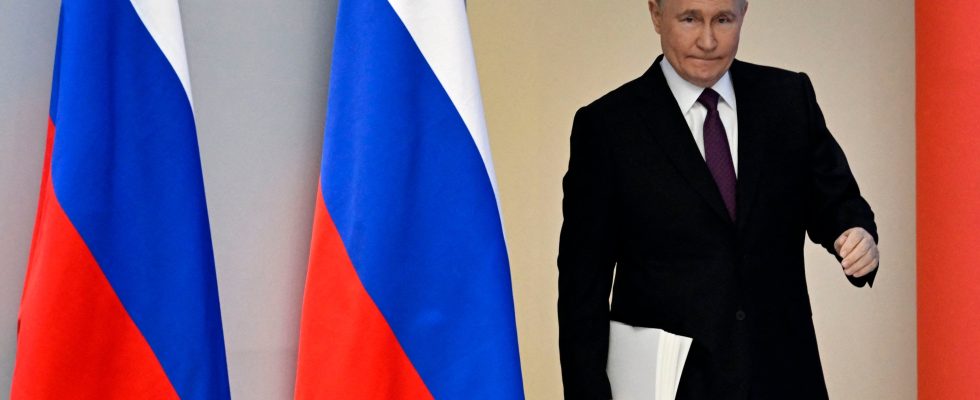“Stalin’s work continued after his death. The state without freedom built by Stalin still lives.” Written in the early 1960s, these two sentences of Anything goes continue to apply to contemporary Russia. Next September, we will celebrate the sixtieth anniversary of the death of their author, Vasily Grossman, a Jewish writer born in the Ukrainian town of Berdichev. We owe him a masterpiece in particular, Life and Destinya Tolstoyian fresco around the Battle of Stalingrad, where the totalitarian madness of the Nazis and Stalinists are paralleled.
Anything goes evokes in particular the Soviet concentration camp hell through its main character, Ivan Grigorievich, released from thirty years in the gulag. The novel finds striking echoes with current events: the opponent Alexeï Navalny, who died in obscure circumstances on February 16, lived his last years in a penitentiary center in the far north, heir to this system. “If the gulag ceased to exist as an institution upon the death of Stalin, certain practices continued, namely removal to Siberia, very difficult living conditions and mistreatment,” notes Grossman’s translator. , Luba Jurgenson.
Anything goes also recounts the terrible famine of Ukrainians orchestrated by the Kremlin in the early 1930s, an event that became a crucial memorial marker of the emancipation of Ukrainians from Moscow. Much of Grossman’s work provides insight into the roots of the ongoing war: “Certain passages from his War notebooks on the moral decomposition of the Red Army and the widespread looting resonate with what we discovered in Boutcha”, underlines Luba Jurgenson, also author of When we woke up: night of February 24, 2022: invasion of Ukraine (Verdier).
Down with Lenin!
For its part, Anything goes is as much a vibrant plea for human freedom, embodied by Ivan Grigorievich, as an implacable indictment against Soviet communism. In this political testament, Grossman does not hesitate to tear down the statue of Lenin. “To take power, he sacrificed everything,” he wrote. “He immolated, he killed what was most sacred in Russia: freedom.” A freedom which the writer considers began to express itself politically after the revolution of February 1917, before the Bolsheviks took power.
But Grossman goes further in his analysis: Lenin returned to the enslavement of the masses in force under the tsars, before the abolition of serfdom by the reformer Alexander II, in 1861. He even believes that the modernization of Russia was is, in fact, “confused with the development of servitude” of the population: “When the brilliant century of Catherine came, the century of the flowering of Russian arts and civilization, serfdom was brought to its height.”
In certain respects, this servitude is expressed again in the resignation, for hundreds of thousands of Russians, of being sent to the Ukrainian front and the risk of losing their skin there to satisfy the ambition of the master of the Kremlin. “The implacable stifling of the personality, the servile subordination of the person to the sovereign and the state, are found throughout the thousand-year history of Russia,” believes Grossman. Putin fits well into a distant authoritarian lineage.
